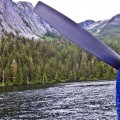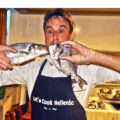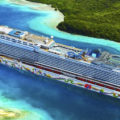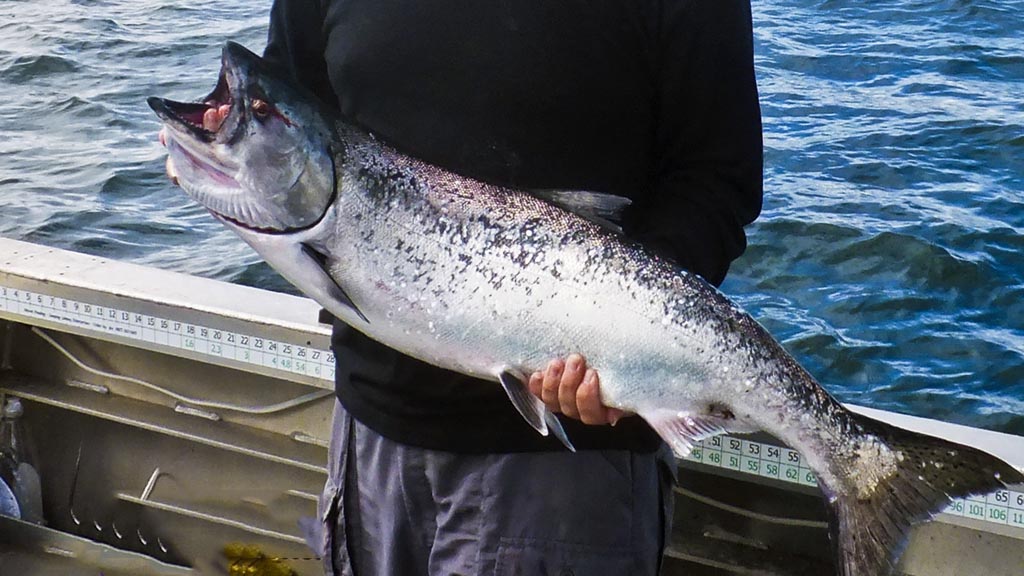
What do Alaska fishing guides do after a long day of helping visiting anglers catch hard-fighting king salmon? They go fishing.
Taylor and Zane are local Alaska boys who pretty much live on their fishing boat. After their day of taking our group from the Oceania Regatta to what they swear is some of the best fishing and whale watching waters on the Alaska coast, they plan to head out again, because nothing beats a good day of fishing.
And this is summer when in Alaska it’s not that easy to sleep anyway because of the midnight sun. Official sunset is 10:30 today but it’s twilight throughout most of the night.
There were six of us eager fisher folk who signed up for a fishing expedition from the Regatta. That’s the perfect contingent for the fishing excursion boats the tour operators use in the inlets and islands of Sitka Sound on Alaska’s Panhandle.
We didn’t have far to go from the ship. The boat Taylor and Zane run was tied up at the other side of the dock from the Regatta’s gangway to meet us as we left the ship in the early morning. After signing up for the fishing license that’s included in the price of the day’s outing and getting a safety briefing, we were off for about a 30-minute run to the fishing grounds.
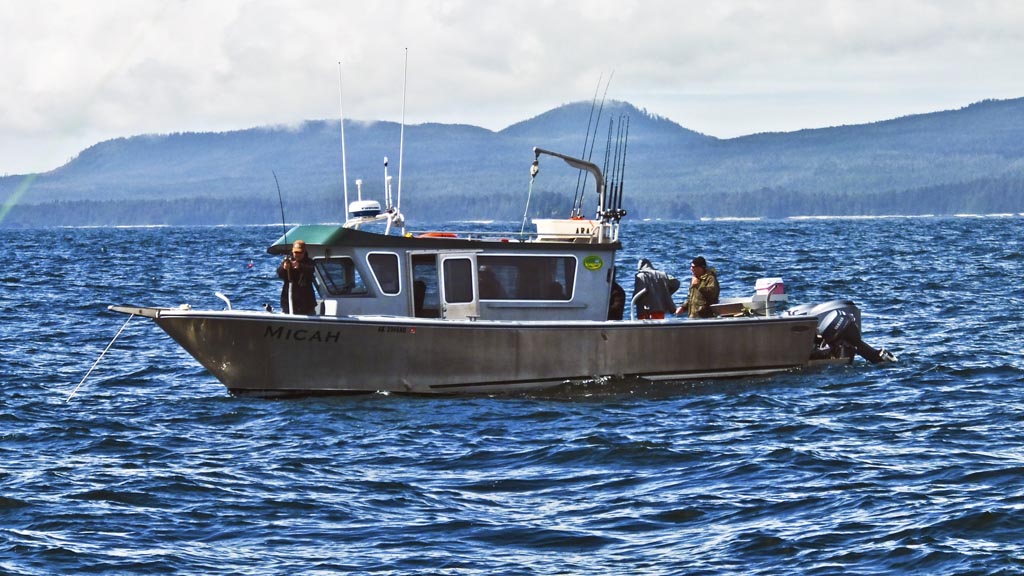
Their 26-foot aluminum offshore boat has rod holders set up all around the deck. And because most of us are not experienced with the big ocean gear you need to fight a fish that can weigh over 30 pounds, the crew does all the work of setting up the rods and reels, baiting the hooks and casting the lines in the water that’s about 150 feet deep.
The joke the guides make is that “It’s called fishing, not necessarily catching,” but in the summer in Alaska, the odds are excellent and the chance to fight a big king salmon on a line is an exhilarating experience. It keeps avid fishermen coming back here year after year, we’re told
The guides also joke about this being Alaska’s wet coast and there’s good reason for that. On average, it rains or snows on 230 days of the year here. So far though, so good with our weather for the trip. It was cool and about 50 degrees when we left the ship but the sun broke through the clouds and it was balmy and bright by the time we dropped anchor for fishing.
When the tide’s coming in and the early morning are said to be best times to fish, and conditions today should be perfect, but luck still has a lot to do with it.
Over 100 boats can be fishing off the coast at once and sometimes if salmon don’t seem to be biting, the guides might try to switch to fishing for halibut or ling cod in shallower water which requires different reels.
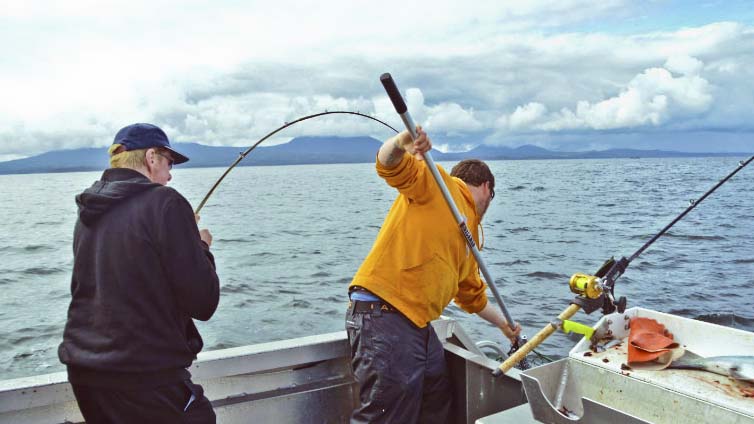
The guides keep a constant eye on the sea and the wildlife. Flocks of sea birds congregating at a spot are a sign of big fish below that are scaring small fish to the surface. There are a lot of puffins in the area, also a good indicator of fish schools.
So we’re set up and now we wait. In usual fishing tradition, the four guys and two gals in our group swap fish stories of catches and ones that got away on other fishing days. There’s no booze on these fishing excursions, but there is a cooler of soft drinks.
Suddenly, there was a sighting that really made the day special: a pod of half a dozen humpback whales cruising their way across the inlet. They don’t do Victory at Sea leaps into the air but their arched backs breaking the surface are pretty impressive and their tails stick high out of the water as they dive.
At one point, they got very close and it seemed one was on a collision course with our boat, but it dived under at the last minute.
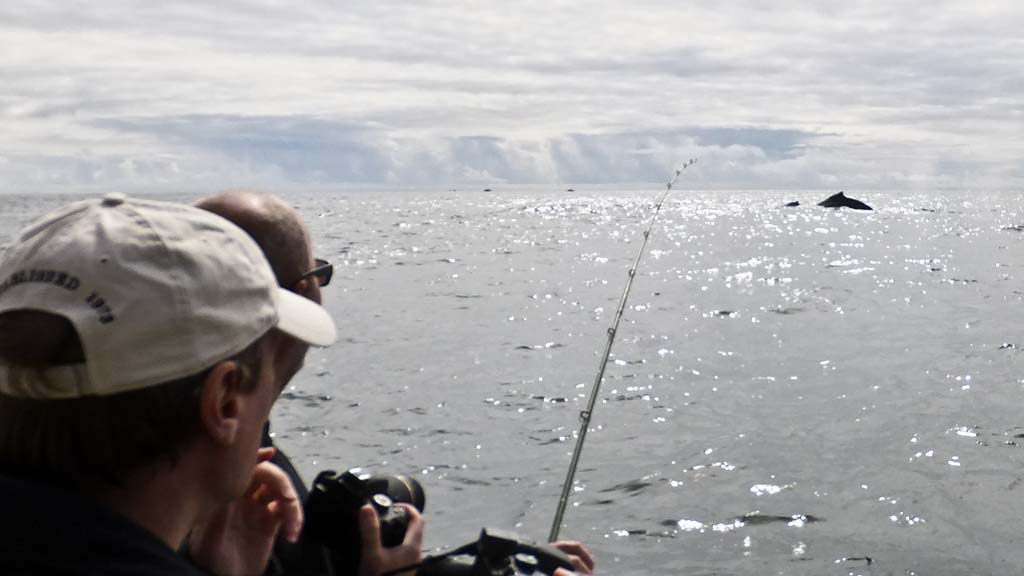
That was a good omen because the salmon starting attacking our bait. We took turns reeling in fish, which turned out to be quite an aerobic exercise. Salmon are big, powerful fish and they’ll thrash and try to pull away from the hook. Trying to reel them in too quickly could pull out the hook and they’ll get away. The best tactic is to gradually tire them out.
Then, when they’re at the surface, you need a second person with a net to bring them into the boat, otherwise their splashing will leave you drenched and in many cases pop them off the hook. I’m glad we had experienced guides who know how to do it right.
Alaska has varying fishing quotas for non-residents depending on the season. On our trip in June, the quota was two salmon per person per day. We were given the choice of catch and release or take our best catch back to either be fileted, frozen and packed for taking home at an extra fee or to be cooked on the ship.
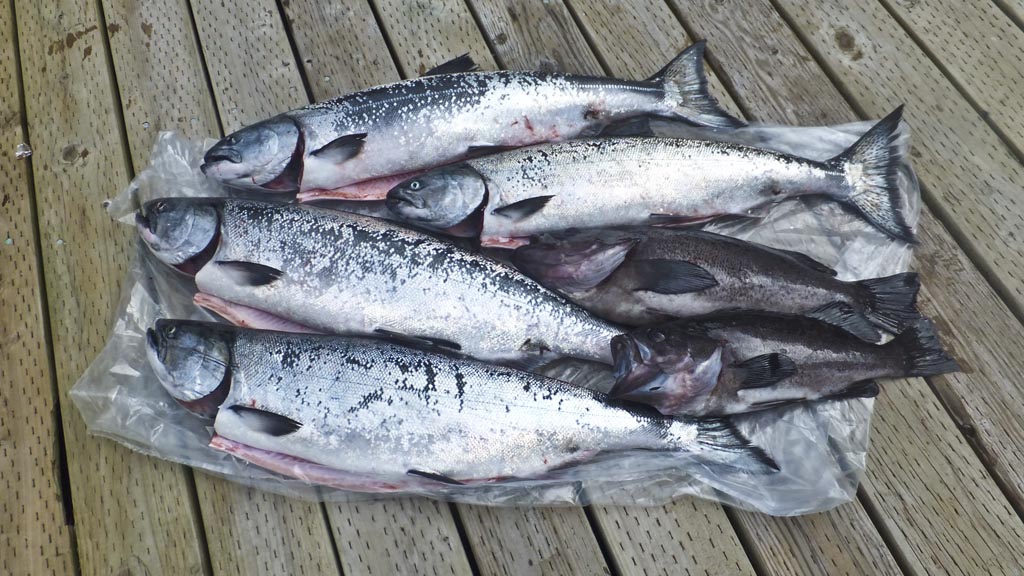
Our group had a successful outing. Of the six guests on the boat, we’d reeled in about 20 fish and released more than half of them. We kept two big black bass and four salmon that each weighed at least 15 pounds. A couple of the guests paid to have their catch frozen and shipped to them when we got home. I preferred to have the salmon I caught prepared for our group at dinner.
Cruise lines have varying policies about cooking your day’s catch. I’d made arrangements with Regatta’s kitchen in advance. They generally can’t cook more than one or two fish, so you can’t count on feeding the whole dining room with your catch. But I can vouch for the fact that there’s nothing quite as flavorful as fish you personally just hauled from the ocean.
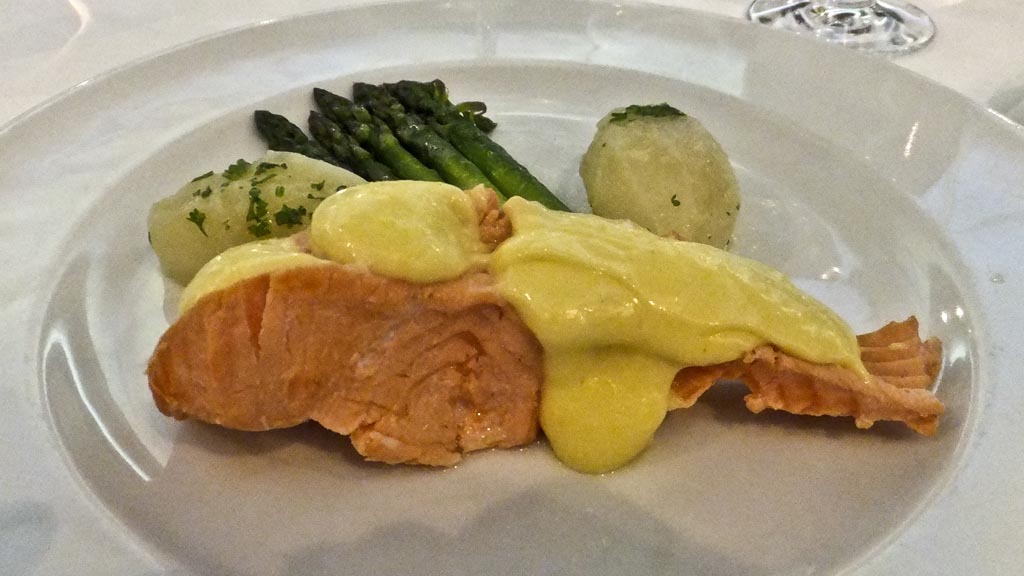
After dinner, with the sun hanging endlessly at the horizon, I could see some fishing boats heading out into the inlet to try their luck. It seems there’s nothing like a good day—or night–of fishing.


